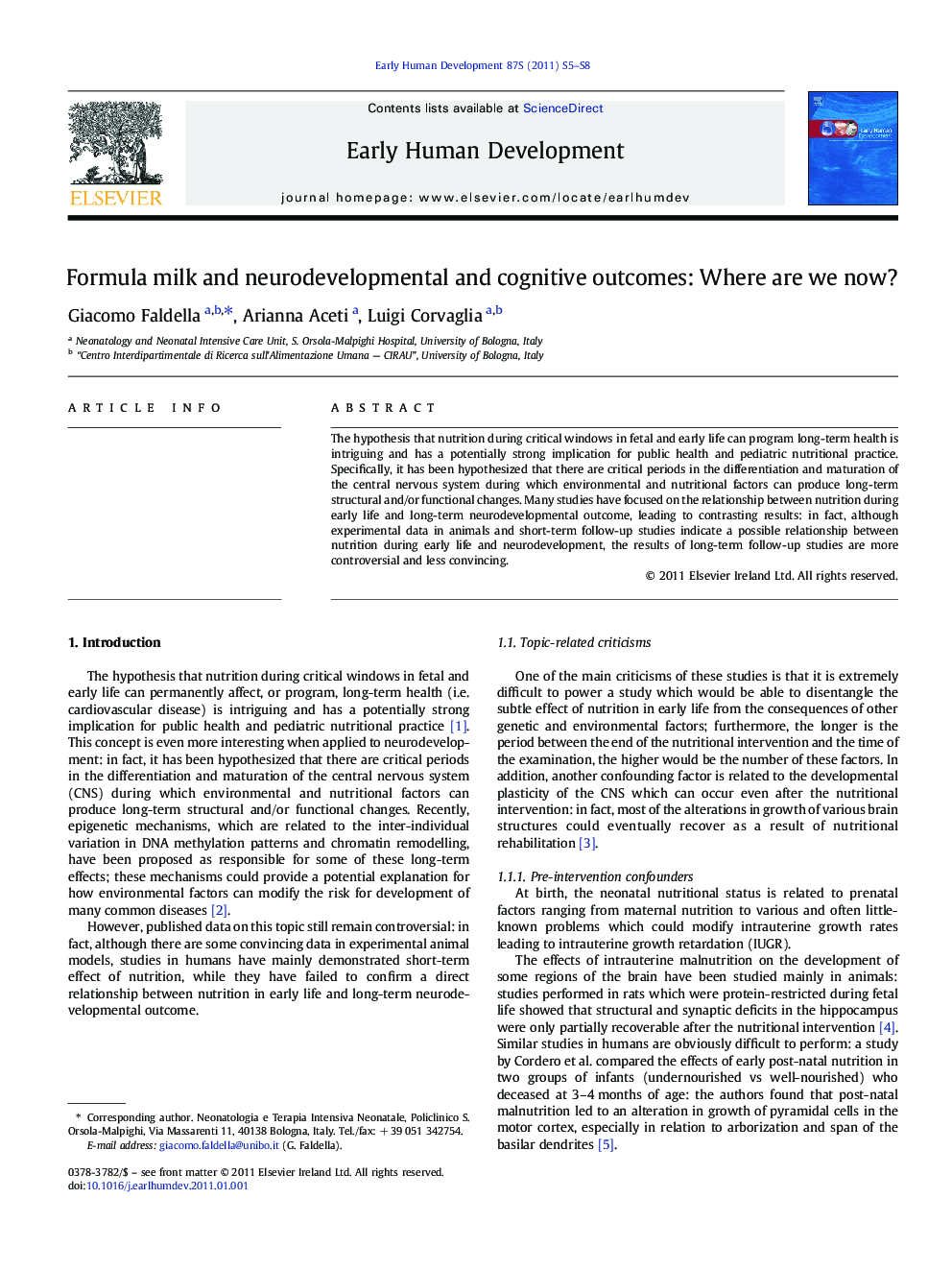| Article ID | Journal | Published Year | Pages | File Type |
|---|---|---|---|---|
| 3917450 | Early Human Development | 2011 | 4 Pages |
The hypothesis that nutrition during critical windows in fetal and early life can program long-term health is intriguing and has a potentially strong implication for public health and pediatric nutritional practice. Specifically, it has been hypothesized that there are critical periods in the differentiation and maturation of the central nervous system during which environmental and nutritional factors can produce long-term structural and/or functional changes. Many studies have focused on the relationship between nutrition during early life and long-term neurodevelopmental outcome, leading to contrasting results: in fact, although experimental data in animals and short-term follow-up studies indicate a possible relationship between nutrition during early life and neurodevelopment, the results of long-term follow-up studies are more controversial and less convincing.
